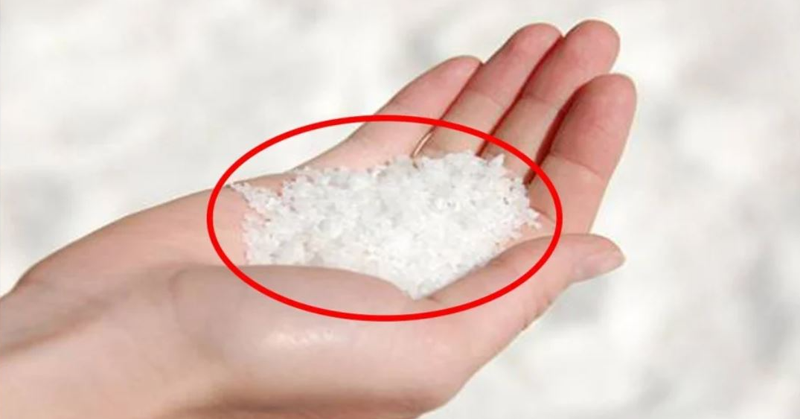
Most believers agree you should toss the salt over your shoulder to counteract bad luck. If you’re curious about this superstition, read on to learn why people throw salt over their shoulder, which shoulder to throw salt over, and where this belief comes from!
Why is throwing salt over your shoulder good luck?

According to superstition, spilling salt is bad luck and invites evil to attack. In many cultures and religions, it is believed that evil spirits hide behind your left shoulder. Throwing salt over your left shoulder with your right hand is thought to blind the spirits and prevent them from harming you.
While you’re distracted and cleaning up the salt spill, the evil spirits are able to move in and take advantage of you, according to the belief.
The Latin word for “Left” is sinister, which led people to associate the left side of the body with evil and wrongness.
According to Christian beliefs, while your left side is associated with the devil and evil, your right side is associated with goodness and angels.

In Buddhist tradition, it’s customary to throw salt over your shoulder after a funeral to keep away bad spirits.
Note: this superstition can be interpreted differently. Some believe it’s best to throw salt over your right shoulder while others throw salt over both shoulders. Ultimately, the correct shoulder is whichever one you feel is best!
The left side of the body is considered the feminine side and is the “receiving” side in terms of energy. Energy flows in the left side and out the right side. If you consider how evil spirits/energy are supposed to physically be able to take over or enter the body (possession), the feminine or left side of the body (being the receiving side) makes sense as this is where the energy would enter.
Read more 👇
Origins of Throwing Salt Over Your Shoulder
In ancient times, salt was valuable, so spilling it was seen as bad luck.
For thousands of years, salt has been prized for its ability to season and preserve food. Because it was originally hard to produce, salt was rare and extremely valuable. Spilling salt was seen as almost sacrilegious or due to the presence of evil, so people started tossing salt over their shoulder to counteract the bad luck.
javascript:'<html><body></body></html>’
– Salt was such a hot commodity that battles were fought over controlling salt mines.
– Many cities developed near salt mines to capitalize on the salt trade, such as Salzburg, Austria. Interestingly, Salzburg means “Salt castle” in German!
– Salt may have been used as currency in ancient Rome and other cities. “Salary” comes from the Latin word Salarium which derives from Sal, or “Salt.” While there are no official records, historians believe Roman soldiers used their money to buy salt or were given salt as their compensation.
– Salt’s importance and value also shows up in phrases like, “Salt of the earth” and “They’re not worth their salt.”
In Christian beliefs, spilling salt is associated with evil and betrayal.
In the Bible, salt symbolizes purity, integrity, grace, and God’s covenant. Spilling salt was thus seen as something evil that’s caused by the devil. This is reflected in Leonardo da Vinci’s painting The Last Supper, where the traitor Judas is depicted spilling salt on the table.
This belief also stems from the story of Lot’s wife, who disobeyed the angels’ warning not to look back at Sodom and was turned into a pillar of salt. She betrayed the angels and gave in to the devil, causing her downfall.
So, Christians started tossing salt over their left shoulder after they spilled salt to disable the devil and prevent him from causing evil


